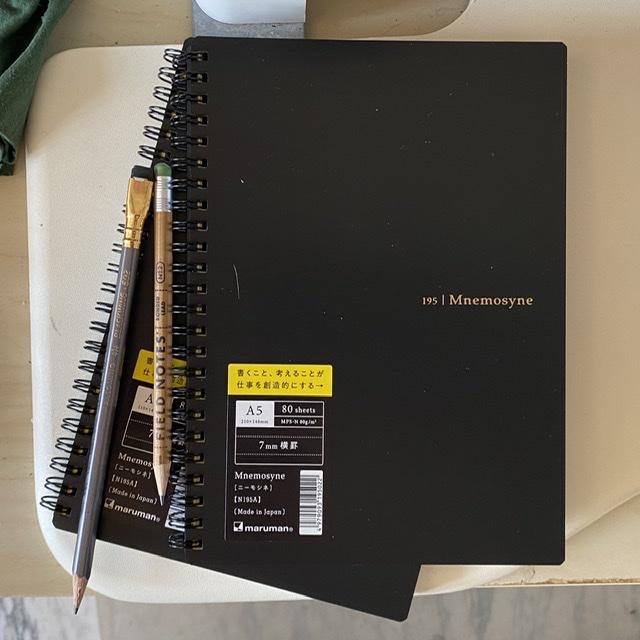What was it like?
Anyone who thinks blogging died at some point in the past twenty years presumably just lost interest themselves, because there have always been plenty of blogs to read. Some slow down, some die, new ones appear. It’s as easy as it’s ever been to write and read blogs.
Phil Gyford's lovely look back to SXSW 2000 and the blogging around it. I don't actually have a crucial event like that, maybe BlogTalk in Vienna, which I didn't do nearly enough to record at the time.
So happy to see Helen Rosner @hels in The New Yorker do a much better job on rotten apples than I managed. https://www.newyorker.com/culture/annals-of-gastronomy/how-apples-go-bad
What's so very strange about reading this post for me, is that the first photograph was taken less than 1 km from where I grew up. Not that it looked much like that back then, apart from the railway bridge.
https://superorganizers.substack.com/p/the-man-who-reads-1000-articles-a
I have about 100 Chrome bookmarks, and I try to visit at least 2 or 3 of them a day to make sure I’m not missing something. But even as I do that, I do it with a private irritation that they don’t have an RSS feed.
Yeah, me too. Except for the bit about checking Chrome bookmarks, because life is too short.
@isellsoap I know that @chrisaldrich was involved in doing Webmention and other IndieWeb things with his local paper; see https://boffosocko.com/2018/05/29/indieweb-ifying-coloradoboulevard-net/
@PhotoJazzy This an awful story to read, but I thank you for sharing it.
Hey @uber_support When are you going to do something about the people in Rome who park bikes where no one can find them? walked past four ghost bikes before I found one that was actually where it was supposed to be.
New decade, new theme – Lea Verou
I was hesitating to blog about it because I was embarrassed at how my website looked. This is it, I thought. If it has gotten so bad that I avoid blogging because I don’t want people to be reminded of how old my website looks, I need to get my shit together and fix this, I told myself.
Isn't that the most perfect reason of all?
OK, pure confirmation bias, but I finally read something that expands and provides details on the chaotic thoughts swirling in my brain about why Joe Rogan's Spotify deal need not be the end. The open podcast ecosystem is dying — here’s how to save it https://divinations.substack.com/p/the-open-podcast-ecosystem-is-dying
That would be a newsletter, right?
Paul Ford's new outlet
Yay! That is all.
In the olden days, these sincere email replies to content strategists and the like would have been an instant success as a book. Doubly so if a reply ever arrived.
One of the few things I dislike about living at the top of a hill is being far from water. The most enjoyable aspects of my brief stay in Utrecht a couple of years ago was walking along the small and large waterways. Some of the houseboats are just so beautiful to look at. To live in, who knows?
Doordash and Pizza Arbitrage
The madness of some markets.
Search Engine Etiquette: Never, Ever Ask for a Backlink
In a nutshell ...
Once Google set the plot point, backlinks became hard to ignore. And marketers looking to get an edge started using a variety of tactics to gain a coveted spot on the front page that didn’t involve actually creating good content that people want to read.
Tim Bray, reflecting on the numbers for his Bye Amazon post.
But aren’t blogs dead? · Um, nope. For every discipline-with-depth that I care about (software/Internet, politics, energy economics, physics), if you want to find out what’s happening and you want to find out from first-person practitioners, you end up reading a blog.
Was true, is true, will be true.
The Technium
I know everybody and her mother have already linked this and bookmarked it, but I want it here for myself, because there is some good stuff in this list.
"Blaming the internet for your gullibility is like blaming a screwdriver for your neurological defects."
No idea where I found this, but I liked it enough to write it down. If you know the origin, please let me know.
I am amazed and saddened by the number of beginner bakers I see in forums saying that their bread tasted fantastic but didn't rise enough, or didn't have giant holes, or didn't a shiny crust, or whatever.
Just eat it.
Bread porn too has a lot to answer for.
It is extremely regrettable and demoralising that robbers and the élite agree on just one thing-- living in hiding.
Kierkegaard quoted in Rebecca Solnit's Wanderlust p256
Meeting of the WithKnown Open Collective
To discuss possible next steps
Location: Online
-
Time Zone: Europe/Rome (GMT +02:00)
See note of previous meeting
A transcript of my conversation with @smargot_finn on taste is now up at the show notes.
An ad-hoc meeting of the WithKnown Open Collective
5 min read
The past 24 hours saw perhaps more activity in the #known IRC channel (yesterday and today) and than I have ever seen before. Near the end of it all, jgmac1106, having previously voluntold me to be the first rotating organiser, voluntold me to “call all of today a meeting of the Open Collective”. Obviously you can’t have a meeting without minutes,[1] so here they are.
It all started with jgmac1106’s heartfelt plea that he just wanted to publish his site, “not learn backend engineering” and contemplating starting afresh. LewisCowles raised the question of how to reward Open Source software developers and maintainers, and that started a discussion of what it would take to put Known on a commercial footing.
Jgmac1106 was of the opinion that easier install with auto-update was needed. Lewiscowles and jeremycherfas thought that better direction of the project was needed, with a model that offered installation, domain management and updates, for a fee.
“Make it Known would be such a great tagline if we could get Sir Patrick Stewart on board.” Lewiscowles
There followed further discussion of operational models, including micro.blog; pay for hosting, including updates, and some backfeed, with a free offering open to IndieWeb if you have a capable site elsewhere.
On funding, jeremycherfas related his early experience hosting through IndieHosters and jgmac1106 talked about applying for grants to fund specific pieces of Known development. We played around with numbers, concluding that nobody knew enough to build even an outline business plan. There did seem to be agreement that venture capital should be rejected from the outset, while collectives and cooperatives could provide a more desirable structure, and that any kind of structure needs direction.
After a gap, some other people joined the channel and mapkyca explained that right now, a bigger block than money was time as he is working flat out. He also said that the maths does not work out for SaaS.
Benatwork then rejoined the meeting and explained in some depth the history of Known, including funding decisions and his original vision.
The original intention was to build a community platform that could be hosted securely, with discussion not monitored by the likes of a Facebook. … [I]t was never built to be an indieweb platform or an individual blogging engine from the start. The core idea was: flexible, social feeds that one or more people could contribute to, with per-item access control and integrations both in and out. I still believe that it has most value as a multi-user platform.
Major problem: we gave our entire platform away as open source, and it turns out there was a strong correlation between people who wanted to use it and people who didn’t want to pay. Although they were happy to pay for an account on a shared host, which of course didn’t go to us. So it didn’t really work as a scalable business.
Benatwork then filled us in on recent developments and why his direct involvement has dwindled, all of which is very understandable, closing with his belief that SaaS is not the way forward.
Jgmac1106 then voluntold jeremycherfas to take the lead on setting up monthly meetings for the next three months, as the first rotating organiser.[2] He also shared his idea of having something like Known to offer local media as something they can sell to subscribers as a built in social platform.
In response to a question from Aaron_Klemm, Benatwork shared the Known roadmap on github. He also explained some of the past technical decisions and that maybe some of those should be revisited to improve the product as a whole.
People shared their different ideas of what Known could become for them, with the question of the current admin tax prominent. Cleverdevil said he would be happy to pay mapkyca to update his site, raising again the potential demand for SaaS.
Benatwork’s vision is Known not as a blog CMS exclusively, but rather:
What Known can do is create a stream of many different kinds of content, and present it differently based on context. Filtering is a similarly powerful idea. “Show me all posts that are sensor readings and photos tagged with bats, from January 1st.”
There was some discussion of other aspects of Known that need attention, including the templating engine, which mapkyca said he hopes to separate completely from the back end.
Chrisaldrich raised the possibility of working with Reclaim Hosting to devise a package similar to what Reclaim offers universities, i.e. Reclaim does the heavy lifting for turnkey Known installs while allowing a small group of others to support people who signed up. Aaron_Klemm supported this idea strongly.
There was a lot more discussion of various ways in which Known could contribute to community internet literacy and how it might be used alongside other web publishing tools.
This summary is an entirely personal capture of the discussion; corrections and comments welcome. (You know how to do that, right?) I’ll suggest some times for an online meeting through the channel.
All this and more I am exploring in the first episode of a mini-series, in conversation with https://twitter.com/smargot_finn 6/6
https://www.eatthispodcast.com/margot-finn/
Maybe there is something universal about what tastes good? And then there’s the equally difficult question of who decides what constitutes “good taste”. Is taste all a matter of status? 5/6
So much for taste being purely subjective. But there’s more. If taste were purely subjective, how would the evil NuFood Corp be able to engineer foods that taste so good that almost all of humanity becomes borderline addicted? 4/6
And yet, it is incredibly easy to leap from “this tastes good (to me)” to “I have good taste,“ and from there it is a hop, skip and jump to “I am a good person”. That being the case, my clear moral duty is to improve your taste and so to improve you. 3/6
What happens on my tongue, in my nose and especially in my brain is mine alone, and you can have little useful to say about it. You could of course point out that I have no idea how bad cilantro tastes to you, but that’s not helpful. 2/6
I’ve been getting myself in a right old muddle about taste lately. Not music or architecture -- well, not entirely -- but gustatory taste, the taste of food. Of course, we all acknowledge that taste is subjective. 1/6
Gardens and Streams
I have a suspicion that people retreat into protocol work to escape from the human work that must be done. And there’s no getting around it: we should learn to better work in this medium and we are really resisting having to confront it.
This is a very real tension, to me.
Friday 17 April, 2020 | Memex 1.1
So many interesting ideas about not returning to normal when (if?) this thing is over.
Chicken Skin Music is truly balm for the soul on an afternoon that feels weird for reasons I cannot put my finger on.
Today I happened across two wiseacres on Twitter -- and no I am not going to bother with a link -- who make me glad I am able to say nothing, there, in return. Turning off RTs doesn't help either, when people will insist on quote RTs when they have nothing of substance to add.
CSS Naked Day 2020
2 min read
I'm not actually a designer, and never will be, but I do enjoy trying to make my website pleasing on the eye, even if it is only my eye. So I was happy enough to go along with CSS Naked Day yesterday, not by removing all the stylesheets but by using `View>Page Style>No Style` in Firefox. And there was only one glaringly obvious problem: a hamburger icon that would choke the entire world. Eric Meyer explained:
But take away the CSS, and the SVG will become 1200 x 1000 again. That might tell you to resize it for production, sure, and you probably should. But it also points out that browsers will not constrain that image, not even to the viewport. If your window is only 900 pixels wide, the SVG could well spill outside, forcing a horizontal scrollbar. Is that good? Maybe! Maybe not! We might wish browsers would bake something like
img {max-width: 100%; height: auto;}into their user-agent stylesheet(s), but maybe that would have unforeseen downsides. The point is, this is a thing about browsers that CSS Naked Day reveals, and it’s worth knowing.
At some point, then, I ought at least think about defining the size of that monster. The rest of it, I'm OK with.









